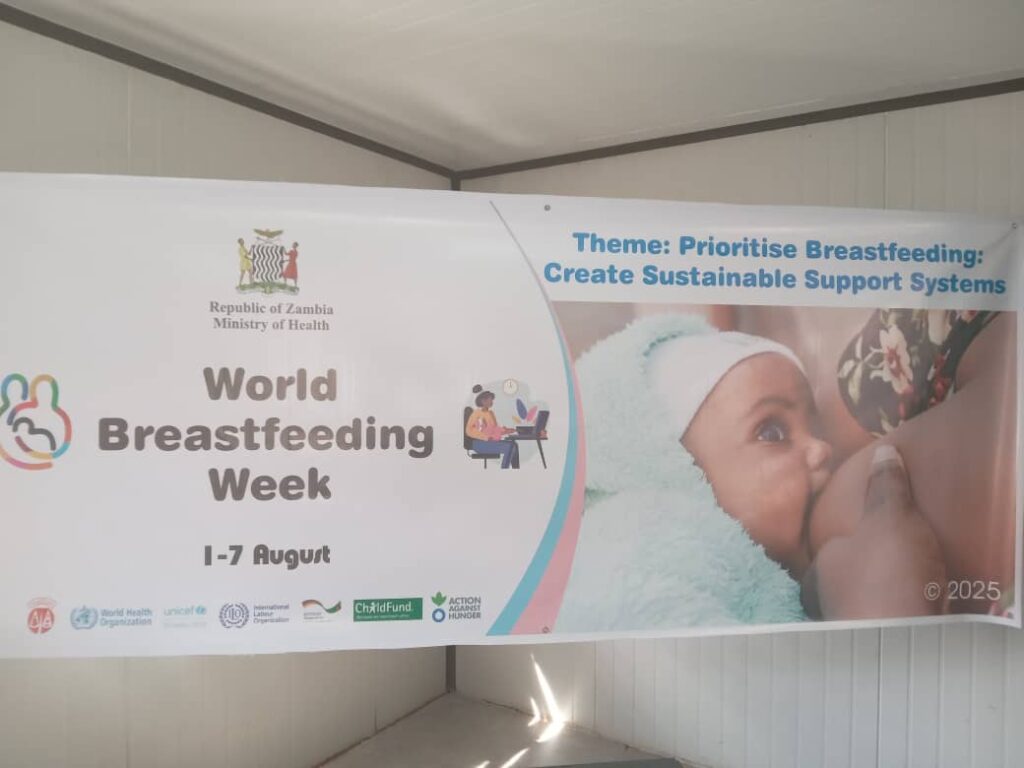CHAZ Calls for Bold Support Systems to Prioritize Breastfeeding in Zambia
The Churches Health Association of Zambia (CHAZ) has called for a whole-society approach to promote and protect breastfeeding in Zambia, emphasizing it as the first act of healthcare, dignity, and national investment.
Speaking during the commemoration of World Breastfeeding Week 2025, held at the Ministry of Health under the global theme “Prioritize Breastfeeding: Create Sustainable Support Systems,” Professor Dhally Menda, CHAZ Health Programmes Director, delivered remarks on behalf of the organization’s Chief Executive Officer, Mrs. Karen Sichali-Sichinga.
“Breastfeeding is where nature, nurture, and nationhood converge,” Prof. Menda stated. “It is not just a private decision but a God-given duty, a scientific intervention, and a social investment.”
The event was graced by the Minister of Health, Hon. Dr. Elijah Muchima, and Minister of Labour and Social Security, Hon. Brenda Tambatamba, along with international partners including WHO, UNICEF, and ILO. Prof. Menda’s passionate remarks highlighted the urgent need to close gaps in support systems, from healthcare delivery to policy protection and workplace accommodations.
Citing declining exclusive breastfeeding rates in Zambia, CHAZ warned that cultural misconceptions, stigma, and weak support structures are undermining progress despite mothers’ willingness to breastfeed.
He urged stronger engagement from all sectors, especially faith-based institutions and communities.
“Faith leaders must raise their voices. Workplaces must offer lactation support. Communities must normalize, not stigmatize, breastfeeding,” he said.
CHAZ, which provides over 30% of Zambia’s rural health services, pledged continued grassroots engagement, saying its Christian values and public health mission compel decisive action.
“We are not just service providers; we are bridge builders, between government and people, evidence and culture, pulpit and policy,” Prof. Menda declared.
In closing, CHAZ challenged policymakers, development partners, and civil society to match mothers’ commitment with coordinated support: “Let us not ask whether mothers are doing their part. Let us ask, are we doing ours?”



